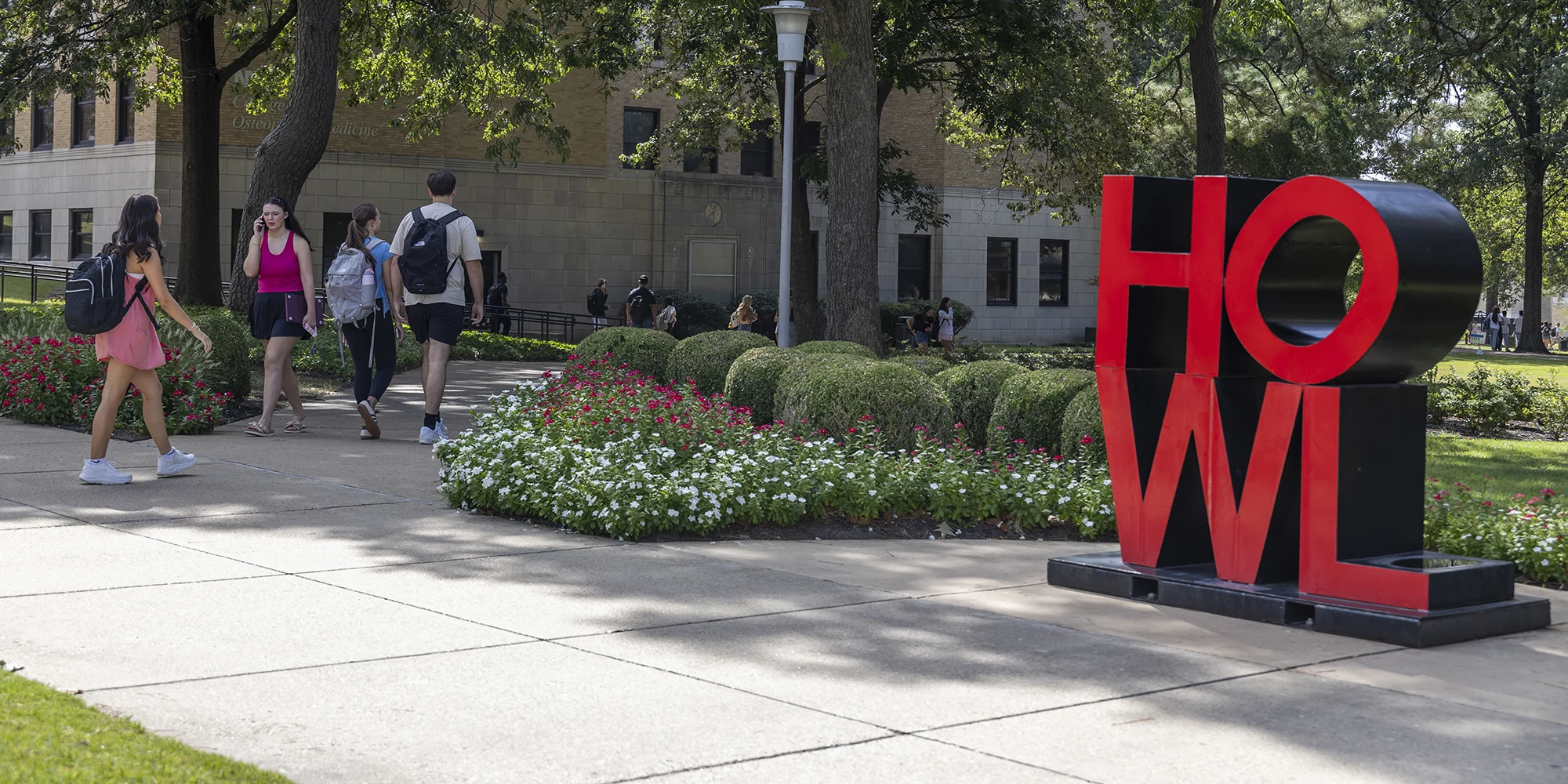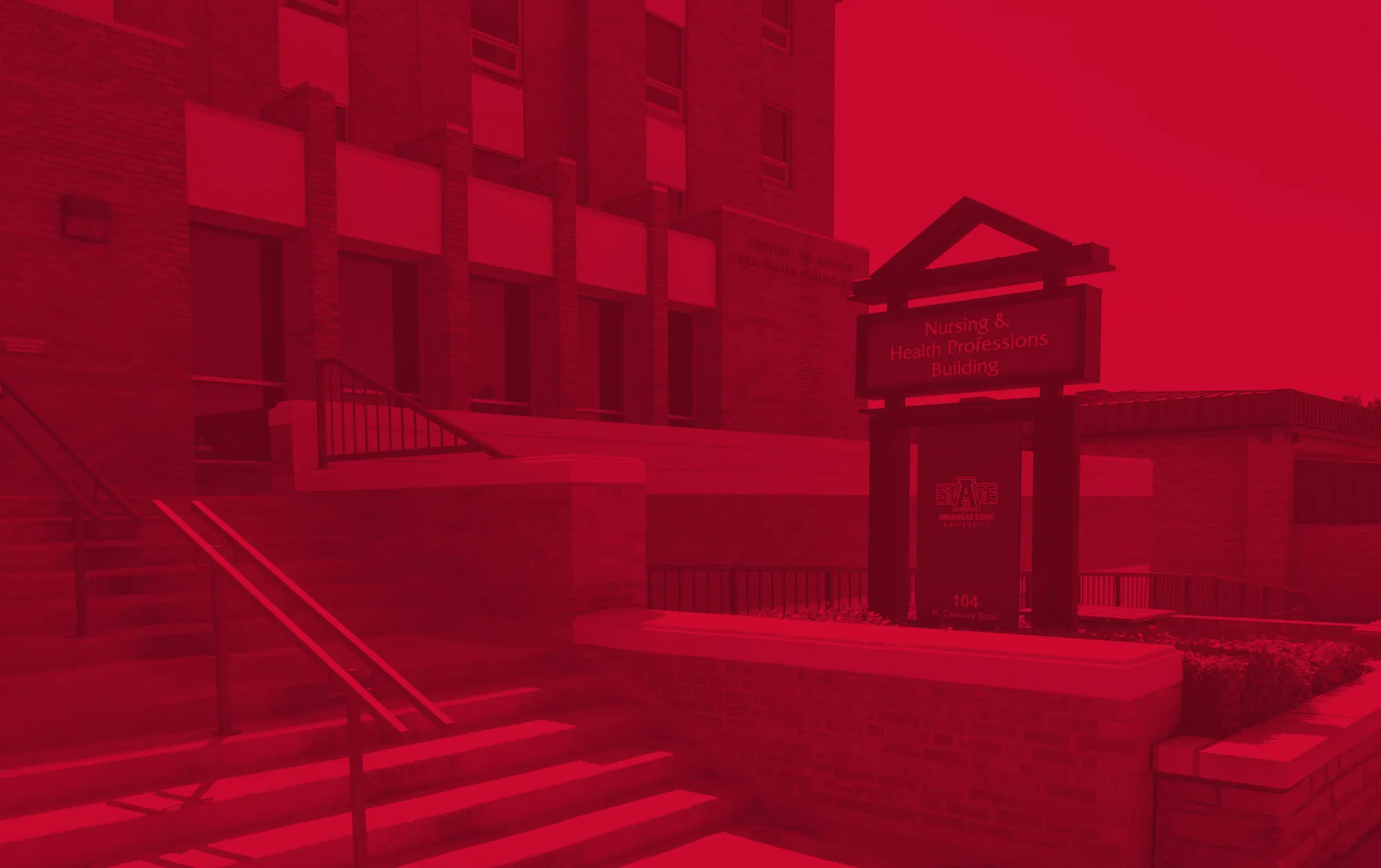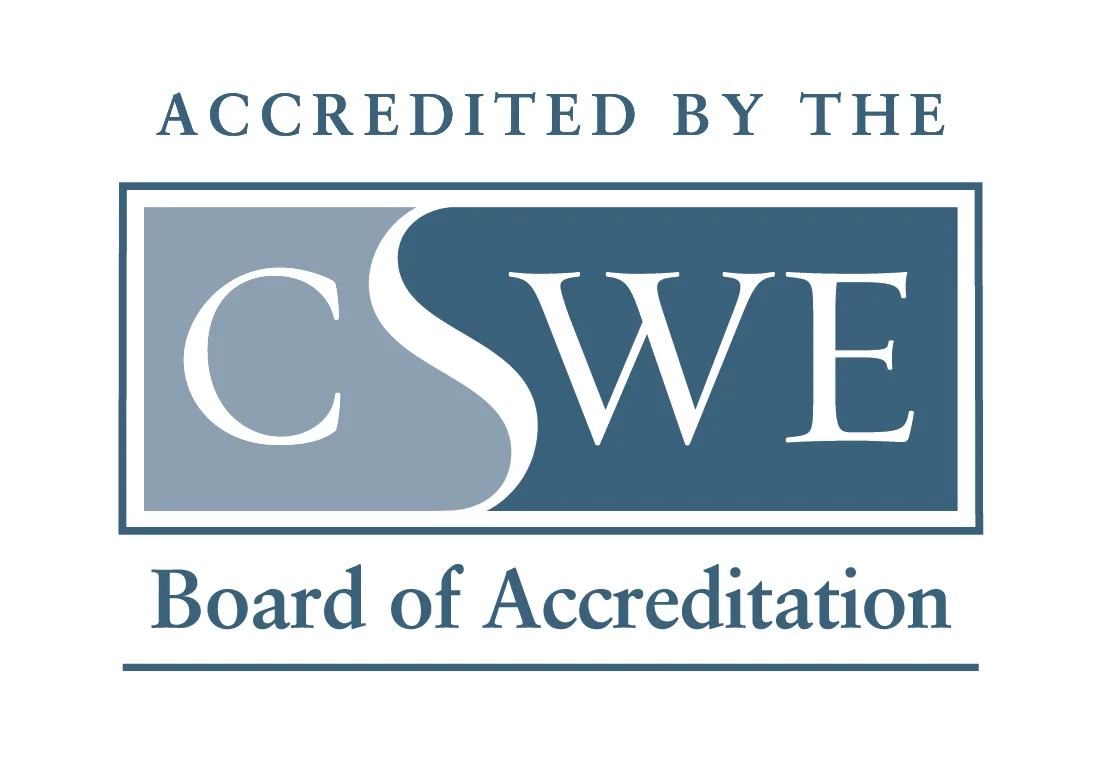BS in Social Work

If you want to make a difference in the lives of others, the Bachelor of Social Work at A-State will teach you how! Learn to support, create change, and build a career that matters. You will affect the lives of families, trauma victims, children in foster care, and more. Learn the skills needed to safely help those in the communities around you get the support and attention they need.

Degree Overview
Bachelor of Social Work
A-State’s BSW program prepares students for social work practice. You’ll learn how to work with people from all walks of life, using skills in interviewing, assessment, and intervention. Graduates are eligible to sit for the Licensed Social Worker (LSW) exam in Arkansas.
College
Nursing & Health ProfessionsCost
Tuition & FeesAdmission Requirements
- 2.75 GPA
- Prerequisite Requirements
- Program Specific Application
- 3 Letters of Recommendation
A-State Admission RequirementsSocial Work Requirements
Careers & outcomes
What social work jobs could you find?
BSW graduates are ready to make a lasting difference in areas like child welfare, mental health, and community advocacy. Possible roles include:
- Case Manager
- Family Services Specialist
- Social Work Assistant
- Child Welfare Advocate
- Community Outreach Coordinator

ACCREDITED BY CSWE
Accreditation of a baccalaureate or master’s social work program by the Council on Social Work Education’s Board of Accreditation indicates that it meets or exceeds criteria for the assessment of program quality evaluated through a peer review process.
Connect With Us.
Program Requirements
- The application deadline is the second Friday of February.
- Students will submit completed applications to the Pre-Major Advisor/Social Work (SW) Department Secretary by due date along with a copy of their current transcript. Applications must be turned in to above designated personnel in the Social Work Department during scheduled office hours.
- The SW Personnel will verify students’ eligibility to apply. Also, students must have completed Introduction to Social Work, ENG 1003 English Composition I and ENG 1013 English Composition II, PSY 2513 Introduction to Psychology, BIOL 1003/1001 Biological Science and Biological Lab, SOC 2213 Introduction to Sociology, & POSC 2103 Introduction to US Government and with a “C” or higher.
- The SW personnel will verify application package and log student name. The completed application package will be submitted to the Admissions Committee Chair in one week: Third Monday in February.
- Student must certify that they will comply with the
- NASW Code of Ethics
- College Substance Abuse Policy.
- Release of information and disclosure form.
- Photo/Video Consent Form.
- College Student Code of Honor Form.
- The admissions committee will convene to review applications and make recommendations.
- The Director of the BSW Program will notify all applicants of their conditional acceptance into the social work program status in writing by April. All applicants will remain conditionally admitted until clearing a background check.
- Based on recent legislation in Arkansas, students admitted to professional programs that require licensure in a state upon graduation are required to have a successful background check to complete formal admissions. This cost is the responsibility the student.
- The newly admitted BSW students must attend the Orientation Meeting. Check with the
Director of the BSW Program the date for this event.
For questions regarding admissions process, please call BSW Director Dr. Rashele Wade at 870-680-8296.
Admission to the BSW Program is competitive. To be considered for admission to the BSW Program, students must meet the minimum requirements of the program that are in effect at the time they seek admission. Meeting the minimum requirements for admission consideration to the BSW program does not necessarily guarantee acceptance to the program.
Students seeking admission into the BSW program must submit a complete application packet, which includes:
- Three professional letters of recommendation, one of which must be from the student’s Introduction of Social Work Professor or Instructor. The forms for all letters of references will be included in admission package.
- Application form, personal interest statement, and transcripts.
- Student must certify that they will comply with the NASW Code of Ethics and the College Substance Abuse Policy.
Prerequisites
After admission to the University, any student may declare social work as a major. All students declaring social work as their major will receive pre-admission advising from a social work faculty member. Admission to the BSW Program is competitive. To be admitted to the BSW Program, students must meet the requirements of the program that are in effect at the time they seek admission.
Current Admission Criteria
- Should have completed a minimum of 45 semester hours of course work at a college/university. Students who have not completed 45 semester hours of course work at a college/university will be considered for conditional admission on a case-by-case basis.
- Have an overall GPA of 2.75 at the time of admission. Maintain a minimum GPA of 2.75 overall and a 2.75 in the major. Overall GPA is defined as all coursework that is being used to satisfy requirements for the BSW degree regardless of the institution from which the credits were earned.
- Must have completed required prerequisite coursework. Prerequisite requirements can be found in the most current Undergraduate Bulletin.
Goals & Objectives
The BSW Program at A-State has four goals. Each of these goals consists of guiding principles for curriculum development and support program activities.
Goal 1: To prepare graduates for practice with individuals, families, groups, organizations, and communities.
Objective 1: Apply critical thinking skills within the context of generalist social work practice.
Objective 2: Demonstrate the professional use of self.
Objective 3: Apply the knowledge and skills of a generalist social work practice with systems of all sizes (individual, family, group, organization, and community).
Objective 4: Apply the knowledge of biological, psychological, sociological, and spiritual factors that affect the individual development and behavior, and use theoretical frameworks to understand the interactions between individuals as well as between individuals and various social systems.
Objective 5: Use communication skills differentially with a variety of client populations, colleagues, and members of the community.
Goal 2: Graduates will apply knowledge pertaining to the contexts of social work practice, the changing nature of those contexts, the behavior of organizations, the dynamics of change, and develop the skills necessary to become change agents.
Objective 1: Understand and interpret the history of the social work profession as well as its contemporary structures and issues.
Objective 2: Formulate, influence, and analyze the impact of social policies on client systems, workers, agencies, and communities.
Objective 3: Function within the structure of organizations and service delivery systems and seek organizational change when necessary.
Objective 4: Understand the value base of the profession and its ethical standards and principles, and practice accordingly.
Objective 5: Apply planned changed process in or among social work practice levels.
Goal 3: To infuse throughout the curriculum the values and ethics that guide professional social workers in their practice.
Objective 1: Understand the forms and mechanisms of oppression and discrimination and the strategies of advocacy and social change that advance social and economic justice.
Objective 2: Practice within the value and ethics of the social work profession and with an understanding of and respect for the positive value of multiple dimensions of diversity, including age, class, color, culture, disability, ethnicity, family structure, gender, marital status, national origin, race, religion, sex, and sexual orientation.
Objective 3: Evaluate research studies and apply research findings to practice, and under supervision, to evaluate their own practice interventions and those of other relevant systems.
Goal 4: Graduates of the BSW Program will understand their responsibility to continue their
professional development.
Objective 1: Demonstrate the ability to plan for and implement appropriate lifelong professional development activities including maintaining appropriate professional credentials.
Objective 2: Demonstrate an ability to assess and incorporate new knowledge and skills for competent generalist practice.
Objective 3: Use supervision and consultation appropriate to generalist practice.
Core Values
The core values embraced by the A-State Social Work Department are the shared values
of the social work profession throughout history and are the foundation of this program
and social work’s unique
purpose and perspective. These six values are:
- Service
- Social justice
- Dignity and worth of the person
- Importance of human relationships
- Integrity
- Competence
Professional resources
The National Association of Social WorkersThe National Association of Social Workers (NASW) is “a membership organization that promotes, develops, and protects the practice of social work and social workers” (Arkansas, NASW, 2003). Students receive a special membership rate and have access to practice insurance while in school. All students are encouraged to join the NASW.
Visit the national NASW websiteNASW Code of Ethics
The NASW Code of Ethics guides all social workers in ethical practice.
VIEW THE NASW CODE OF ETHICS >>
Arkansas Social Work Licensing BoardLicensing information and continuing education requirements can be found on their website.
FRESHMEN STUDENTS
Freshmen applicants who meet one of the following criteria will receive automatic admission to Arkansas State. While you have to meet minimum criteria, test scores are still required:
- 3.00 cumulative high school grade point average (or GED test score equivalent)
- 19 minimum ACT super score or minimum 990 combined SAT super score
- Class rank in the top 20% of applicant's graduating class
- A holistic application review process
Admitted freshmen who require remediation (based on entrance exam scores) or who have less than a 3.00 cumulative high school GPA will be required to participate in the Transition Studies leadership based support program throughout their enrollment at Arkansas State University
ADMISSION APPEALS
Freshmen applicants who do not meet automatic admission standards may be admitted to the university upon approval of the Undergraduate Admissions Appeal Committee. Freshmen approved by the Undergraduate Admissions Appeal Committee will participate in the Transition Studies leadership-based support program. In addition to an official high school transcript and official entrance exam scores, submit to the committee:
- Two letters of recommendation
- Statement of purpose answering the following prompts:
- Why is A-State a good fit for you and your educational goals?
- What are your academic and personal strengths and how do you plan to grow as a student at A-State?
- What experiences outside of the classroom impact or had an impact on your academic performance.
Documents must be submitted at least two weeks before the start of classes for the semester.
FRESHMAN ADMISSION CHECKLIST:
- Completed Online Application
- $30 Application Fee
- Official High School Transcript
- Official ACT/SAT Score
- Immunization Record (2 MMRs)
TRANSFER STUDENTS
ADMISSION CRITERIA:
Transfer students are encouraged to apply for admissions the semester prior to enrolling
in classes. You must have a cumulative 2.0 GPA on ALL transfer work. Students still
in high school who have earned college credit should apply as a freshman.
TRANSFER ADMISSION CHECKLIST:
- Completed Online Application
- $30 Application Fee
- Official college transcript(s) from all colleges attended (emailed attachments and faxes will not be accepted)
- Completion of English Comp I and College Algebra OR official entrance exam scores
- Immunization Record (2 MMRs)
NON-DEGREE STUDENTS
ADMISSION CRITERIA:
Individuals who wish to pursue courses of special interest without submitting academic
credentials may register for a maximum of six hours per semester (or three per summer
term) accumulating up to 12 semester hours of undergraduate non-degree credit. Thereafter,
non-degree students must comply with university admissions requirements or obtain
a written waiver from the Registrar.
CAUTION: Non-degree students should not enroll in courses that are required in the general education program. Courses taken for non-degree credit are not acceptable toward a degree unless validated later by the student's meeting all conditions for admission to the university, including remediation requirements.
Non-degree students are required to meet the same course prerequisites as other students. Non-degree students are generally not eligible to participate in financial aid programs. Due to specific enrollment limitations, non-degree students may not register through the university's web registration system.
NON-DEGREE ADMISSION CHECKLIST:
- Completed Online Application
- $30 Application Fee
- Immunization Record (2 MMRs)
POST-DEGREE STUDENTS
ADMISSION CRITERIA:
Students who have earned a bachelor's degree and plan to enroll in additional undergraduate
coursework should apply as a post-degree student. This includes students who earned
a bachelor's degree at A-State.
POST-DEGREE ADMISSION CHECKLIST:
- Completed Online Application
- $30 Application Fee
- Official college transcript where the bachelor's degree was received
- Immunization Record (2 MMRs)
RETURNING (READMIT) STUDENTS
ADMISSION CRITERIA:
Students who have previously attended A-State but have not completed a bachelor's
degree should apply as a readmit student. If you earned credit at A-State while still
in high school, you should apply as a freshman or transfer student. Students who attended
A-State and then attended another college should apply as a readmit student and submit
the transcript from another institution.
RETURNING ADMISSION CHECKLIST:
- Completed Online Application
- $30 Application Fee
- Completion of English Comp I and College Algebra OR entrance exam scores
- Official College Transcript (If attended another institution after you attended A-State)
- Immunization Record (2 MMRs)
TRANSIENT STUDENTS
ADMISSION CRITERIA:
Students who have not earned a bachelor's degree who are enrolled at another institution
and plan to transfer coursework back to their home institution should apply as a transient
student. Transient students are required to meet the same course prerequisites as
other students. Transient students are not eligible for financial aid or scholarships.
TRANSIENT ADMISSION CHECKLIST:
- Completed Online Application
- $30 Application Fee
- Official college transcript from currently enrolled college or letter of good standing
- Immunization Record (2 MMRs)
CONCURRENT STUDENTS
The A-State Concurrent Program is a partnership between the university and high schools to offer qualified high school students the opportunity to satisfy both high school and university credit requirements simultaneously through specific concurrent credit courses.
1. TAKE A CAMPUS TOUR
Learn about all A-State has to offer while visiting campus! We have a great team of student Chancellor's Ambassadors who love showing future students around the place they call home. To schedule a campus visit, click the link below and select the type of tour, date, and time that works best for you.
2. COMPLETE AN APPLICATION FOR ADMISSION
Please complete an online admissions application. Click the link "Create an account" under the First-Time User heading. You will be emailed a temporary PIN number for your initial log in. Then you can set a new password. This will allow you to log in at any time and check your application status. For more detailed instructions, please check our UG application guide.
Go to the online application >>
3. SUBMIT A $30 NON-REFUNDABLE APPLICATION FEE
You will pay the application fee online when completing your application. To apply for an application fee waiver, please submit the Undergraduate Application Fee Waiver Request Form.
4. REQUEST OFFICIAL TRANSCRIPT
Once you've applied, have your high school send us your transcript. This is typically handled through your high school counseling office. Also, if you've taken any concurrent enrollment college courses, have those official transcripts sent as well.
Official transcripts can be sent electronically through school-verified sites or mailed to:
Office of Admissions, Records and Registration - Arkansas State University
P.O. Box 1800
State University, AR 72467
5. SEND OFFICIAL TEST SCORES
Prospective students may use the following submission methods:
- High School Transcripts and Test Scores:
All high school transcripts, ACT scores, and SAT scores must be sent directly from the high school or issuing institution, either via mail or electronically, to be considered official.
Examples of school-verified electronic sources:- TRIAND
- EDI
- eScript
- Scoir
- Slate.org
- Parchment
Office of Admissions - Arkansas State University
P.O. Box 1800 | State University, AR 72467
If a student hand-delivers a transcript or test scores, they must be in a sealed envelope from the institution to be considered official. - College Transcripts and Test Scores:
All college transcripts must be sent directly from the institution via mail or electronically to be considered official.
Accuplacer scores must come directly from the institution or College Board to be considered official.
If a student hand-delivers transcripts or test scores, they must be in a sealed envelope from the institution to be considered official. - Documents Received by A-State Admissions Counselors:
Transcripts, test scores and shot records received by A-State Admissions Counselors during school visits should be uploaded directly into Slate. These documents are considered official if:- They are received directly from a school official.
- They are received from the student in a sealed, school-branded envelope.
- The Admissions Counselor who receives these documents must attest to their authenticity.
- Proof of MMR Immunization:
Students may submit proof of MMR (Measles, Mumps, Rubella) immunization directly. These documents are not required to be in a sealed envelope. - Official Test Scores:
ACT Scores:
ACT scores can be sent directly to Arkansas State University via the high school or through Encoura. For more information on how to send ACT scores, visit ACT Score Sending.
SAT Scores:
SAT scores can be sent directly via the high school or through the College Board. For details on sending SAT scores, please refer to SAT Score Sending.
Accuplacer Scores:
Accuplacer scores can be sent directly by the testing administrator at the testing site, the College Board, or through the A-State Testing Center. For more information, visit Accuplacer Score Information.
6. SUBMIT TWO MMR (MUMPS, RUBELLA & RUBEOLA/MEASLES) RECORDS
MMR records are not required for admissions but must be submitted to enroll in on-campus courses.
Upload a copy of your MMR records to your application or have MMR records sent to:
Office of Admissions, Records and Registration - Arkansas State University
P.O. Box 1800
A-State is expected to achieve at least 58% on each level of competency.
Competency 1:
- Instrument 1: Reflection and Theoretical Analysis Paper: Case Study.
- Students must score a minimum of 3 out of 4 points.
- Instrument 2: Field Evaluation/Learning Agreement.
- Students must score a minimum of 4 out of 5 points on items 1.1 through 1.4.
Competency 2:
In order to remain in legal compliance with State of Arkansas Act 341 (Arkansas ACCESS Act), Arkansas State University is not to collect or report data related to DEI for accreditation purposes.
Competency 3:
In order to remain in legal compliance with State of Arkansas Act 341 (Arkansas ACCESS Act), Arkansas State University is not to collect or report data related to DEI for accreditation purposes.
Competency 4:
- Instrument 1: Organization Research Paper.
- Students must score 3 out of 4 points.
- Instrument 2: Field Evaluation/Learning Agreement.
- Students must score a minimum of 4 out of 5 points on Items 4.1 & 4.2.
Competency 5:
In order to remain in legal compliance with State of Arkansas Act 341 (Arkansas ACCESS Act), Arkansas State University is not to collect or report data related to DEI for accreditation purposes.
Competency 6:
- Instrument 1: Reflection and Theoretical Analysis Paper: Film.
- Students must score a minimum of 3 out of 4 points.
- Instrument 2: Field Evaluation/Learning Agreement.
- Students must score a minimum of 4 out of 5 points on items 6.1 & 6.2.
Competency 7:
- Instrument 1: Your Own Non-Profit Social Work Agency Project.
- Students must score a minimum of 3 out of 4 points.
- Instrument 2: Field Evaluation/Learning Agreement.
- Students must score a minimum of 4 out of 5 points on items 7.1 & 7.2.
Competency 8:
- Instrument 1: Individual Reflection and OBservations of Group Process.
- Students must score a minimum of 3 out of 4 points.
- Instrument 2: Field Evaluation/Learning Agreement.
- Students must score a minimum of 4 out of 5 points on items 8.1 & 8.2.
Competency 9:
- Instrument 1: Program Analysis Case Study Paper.
- Students must score a minimum of 3 out of 4 points.
- Instrument 2: Field Evaluation/Learning Agreement.
- Students must score a minimum of 4 out of 5 points on items 9.1 & 9.2.
summary of outcomes
| Competency | Expected Level of Achievement | Aggregate Actual Outcomes for All Program Options (n=59) | Program Option 1 Outcomes |
|---|---|---|---|
| 1 | 85% | 93.5% | 93.5% |
| 2 | In order to remain in legal compliance with State of Arkansas Act 341 (Arkansas ACCESS Act), Arkansas State University is not to collect or report data related to DEI for accreditation purposes. | ||
| 3 | In order to remain in legal compliance with State of Arkansas Act 341 (Arkansas ACCESS Act), Arkansas State University is not to collect or report data related to DEI for accreditation purposes. | ||
| 4 | 85% | 92.5% | 92.5% |
| 5 | In order to remain in legal compliance with State of Arkansas Act 341 (Arkansas ACCESS Act), Arkansas State University is not to collect or report data related to DEI for accreditation purposes. New assessment data will be gathered as new instruments are assessed to remain in legal compliance. | ||
| 6 | 85% | 82.5% | 82.5% |
| 7 | 85% | 97% | 97% |
| 8 | 85% | 98.5% | 98.5% |
| 9 | 85% | 88.5% | 88.5% |


